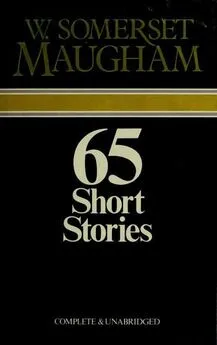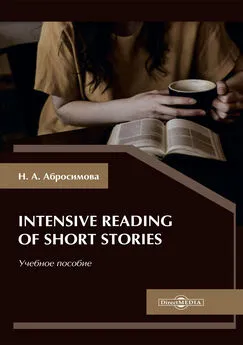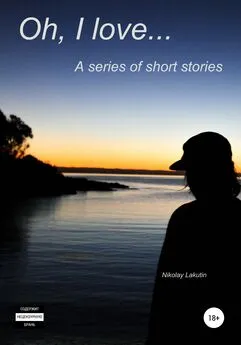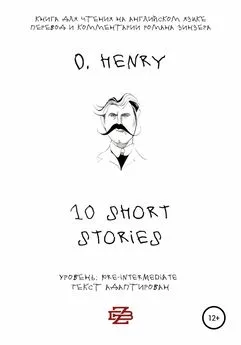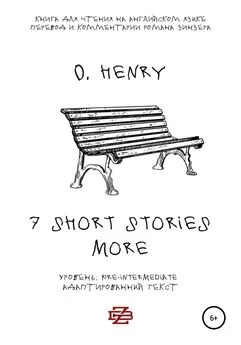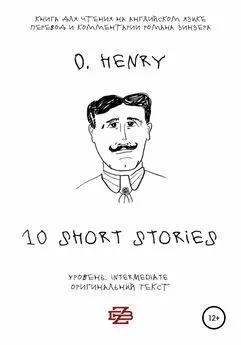Somerset Maugham - Sixty-Five Short Stories
- Название:Sixty-Five Short Stories
- Автор:
- Жанр:
- Издательство:неизвестно
- Год:неизвестен
- ISBN:нет данных
- Рейтинг:
- Избранное:Добавить в избранное
-
Отзывы:
-
Ваша оценка:
Somerset Maugham - Sixty-Five Short Stories краткое содержание
Sixty-Five Short Stories - читать онлайн бесплатно полную версию (весь текст целиком)
Интервал:
Закладка:
'Hullo, I wonder who sent us this,' he said, with a laugh. 'It must be for you, darling.'
Anne gave him a quick look. She went pale. The brutes! How could they be so cruel? She forced herself to smile.
'It's enormous, isn't it? I've never seen such a large powder-puff in my life.'
But when he had left the cabin and they were out at sea, she threw it passionately overboard.
And now, now that they were back in London and Sondurah was nine thousand miles away, she clenched her hands as she thought of it. Somehow, it seemed the worst thing of all. It was so wantonly unkind to send that absurd object to Alban, Powder-Puff Percy; it showed such a petty spite. Was that their idea of humour? Nothing had hurt her more and even now she felt that it was only by holding on to herself that she could prevent herself from crying. Suddenly she started, for the door opened and Alban came in. She was still sitting in the chair in which he had left her.
'Hullo, why haven't you dressed?' He looked about the room. 'You haven't unpacked.'
'No.'
'Why on earth not?'
'I'm not going to unpack. I'm not going to stay here. I'm leaving you.'
'What are you talking about?'
'I've stuck it out till now. I made up my mind I would till we got home. I set my teeth, I've borne more than I thought it possible to bear, but now it's finished. I've done all that could be expected of me. We're back in London now and I can go.'
He looked at her in utter bewilderment.
'Are you mad, Anne?'
'Oh, my God, what I've endured! The journey to Singapore, with all the officers knowing, and even the Chinese stewards. And at Singapore, the way people looked at us at the hotel, and the sympathy I had to put up with, the bricks they dropped and their embarrassment when they realized what they'd done. My God, I could have killed them. That interminable journey home. There wasn't a single passenger on the ship who didn't know. The contempt they had for you and the kindness they went out of their way to show me. And you so self-complacent and so pleased with yourself, seeing nothing, feeling nothing. You must have the hide of a rhinoceros. The misery of seeing you so chatty and agreeable. Pariahs, that's what we were. You seemed to ask them to snub you. How can anyone be so shameless?'
She was flaming with passion. Now that at last she need not wear the mask of indifference and pride that she had forced herself to assume she cast aside all reserve and all self-control. The words poured from her trembling lips in a virulent stream.
'My dear, how can you be so absurd?' he said good-naturedly, smiling. 'You must be very nervous and high-strung to have got such ideas in your head. Why didn't you tell me? You're like a country bumpkin who comes to London and thinks everyone is staring at him. Nobody bothered about us, and if they did what on earth did it matter? You ought to have more sense than to bother about what a lot of fools say. And what do you imagine they were saying?'
'They were saying you'd been fired.'
'Well, that was true,' he laughed.
'They said you were a coward.'
'What of it?'
'Well, you see, that was true too.'
He looked at her for a moment reflectively. His lips tightened a little.
'And what makes you think so?' he asked acidly.
'I saw it in your eyes, that day the news came, when you refused to go to the estate and I followed you into the hall when you went to fetch your topee. I begged you to go, I felt that whatever the danger you must take it, and suddenly I saw the fear in your eyes. I nearly fainted with the horror.'
'I should have been a fool to risk my life to no purpose. Why should I? Nothing that concerned me was at stake. Courage is the obvious virtue of the stupid. I don't attach any particular importance to it.'
'How do you mean that nothing that concerned you was at stake? If that's true then your whole life is a sham. You've given away everything you stood for, everything we both stand for. You've let all of us down. We did set ourselves up on a pinnacle, we did think ourselves better than the rest of them because we loved literature and art and music, we weren't content to live a life of ignoble jealousies and vulgar tittle-tattle, we did cherish the things of the spirit, and we loved beauty. It was our food and drink. They laughed at us and sneered at us. That was inevitable. The ignorant and the common naturally hate and fear those who are interested in things they don't understand. We didn't care. We called them Philistines. We despised them and we had a right to despise them. Our justification was that we were better and nobler and wiser and braver than they were. And you weren't better, you weren't nobler, you weren't braver. When the crisis came you slunk away like a whipped cur with his tail between his legs. You of all people hadn't the right to be a coward. They despise us now and they have the right to despise us. Us and all we stood for. Now they can say that art and beauty are all rot; when it comes to a pinch people like us always let you down. They never stopped looking for a chance to turn and rend us and you gave it to them. They can say that they always expected it. It's a triumph for them. I used to be furious because they called you Powder-Puff Percy. Did you know they did?'
'Of course. I thought it very vulgar, but it left me entirely indifferent.'
'It's funny that their instinct should have been so right.'
'Do you mean to say you've been harbouring this against me all these weeks? I should never have thought you capable of it.'
'I couldn't let you down when everyone was against you. I was too proud for that. Whatever happened I swore to myself that I'd stick to you till we got home. It's been torture.'
'Don't you love me any more?'
'Love you? I loathe the very sight of you.'
'Anne!'
'God knows I loved you. For eight years I worshipped the ground you trod on. You were everything to me. I believed in you as some people believe in God. When I saw the fear in your eyes that day, when you told me that you weren't going to risk your life for a kept woman and her half-caste brats, I was shattered. It was as though someone had wrenched my heart out of my body and trampled on it. You killed my love there and then, Alban. You killed it stone-dead. Since then when you've kissed me I've had to clench my hands so as not to turn my face away. The mere thought of anything else makes me feel physically sick. I loathe your complacence and your frightful insensitiveness. Perhaps I could have forgiven it if it had been just a moment's weakness and if afterwards you'd been ashamed. I should have been miserable, but I think my love was so great that I should only have felt pity for you. But you're incapable of shame. And now I believe in nothing. You're only a silly, pretentious, vulgar poseur. I would rather be the wife of a second-rate planter so long as he had the common human virtues of a man than the wife of a fake like you.'
He did not answer. Gradually his face began to discompose. Those handsome, regular features of his horribly distorted and suddenly he broke out into loud sobs. She gave a little cry.
'Don't Alban, don't.'
'Oh, darling, how can you be so cruel to me? I adore you. I'd give my whole life to please you. I can't live without you.'
She put out her arms as though to ward off a blow.
'No, no, Alban, don't try to move me. I can't. I must go. I can't live with you any more. It would be frightful. I can never forget. I must tell you the truth, I have only contempt for you and repulsion.'
He sank down at her feet and tried to cling to her knees. With a gasp she sprang up and he buried his head in the empty chair. He cried painfully with sobs that tore his chest. The sound was horrible. The tears streamed from Anne's eyes and, putting her hands to her ears to shut out that dreadful, hysterical sobbing, blindly stumbling she rushed to the door and ran out.
The Book-Bag
Some people read for instruction, which is praiseworthy, and some for pleasure, which is innocent, but not a few read from habit, and I suppose that this is neither innocent nor praiseworthy. Of that lamentable company am I. Conversation after a time bores me, games tire me, and my own thoughts, which we are told are the unfailing resource of a sensible man, have a tendency to run dry. Then I fly to my book as the opium-smoker to his pipe. I would sooner read the catalogue of the Army and Navy Stores or Bradshaw's Guide than nothing at all, and indeed I have spent many delightful hours over both these works. At one time I never went out without a second-hand bookseller's list in my pocket. I know no reading more fruity. Of course to read in this way is as reprehensible as doping, and I never cease to wonder at the impertinence of great readers who, because they are such, look down on the illiterate. From the standpoint of what eternity is it better to have read a thousand books than to have ploughed a million furrows? Let us admit that reading with us is just a drug that we cannot do without-who of this band does not know the restlessness that attacks him when he has been severed from reading too long, the apprehension and irritability, and the sigh of relief which the sight of a printed page extracts from him?-and so let us be no more vainglorious than the poor slaves of the hypodermic needle or the pint-pot.
And like the dope-fiend who cannot move from place to place without taking with him a plentiful supply of his deadly balm I never venture far without a sufficiency of reading matter. Books are so necessary to me that when in a railway train I have become aware that fellow-travellers have come away without a single one I have been seized with a veritable dismay. But when I am starting on a long journey the problem is formidable. I have learnt my lesson.
Once, imprisoned by illness for three months in a hill-town in Java, I came to the end of all the books I had brought with me, and knowing no Dutch was obliged to buy the schoolbooks from which intelligent Javanese, I suppose, acquired knowledge of French and German. So I read again after five-and-twenty years the frigid plays of Goethe, the fables of La Fontaine, and the tragedies of the tender and exact Racine. I have the greatest admiration for Racine, but I admit that to read his plays one after the other requires a certain effort in a person who is suffering from colitis. Since then I have made a point of travelling with the largest sack made for carrying soiled linen and filling it to the brim with books to suit every possible occasion and every mood. It weighs a ton and strong porters reel under its weight. Custom-house officials look at it askance, but recoil from it with consternation when I give them my word that it contains nothing but books. Its inconvenience is that the particular work I suddenly hanker to read is always at the bottom and it is impossible for me to get it without emptying the book-bag's entire contents upon the floor. Except for this, however, I should perhaps never have heard the singular history of Olive Hardy.
I was wandering about Malaya, staying here and there, a week or two if there was a rest-house or a hotel, and a day or so if I was obliged to inflict myself on a planter or a District Officer whose hospitality I had no wish to abuse; and at the moment I happened to be at Penang. It is a pleasant little town, with a hotel that has always seemed to me very agreeable, but the stranger finds little to do there and time hung a trifle heavily on my hands. One morning I received a letter from a man I knew only by name. This was Mark Featherstone. He was Acting Resident, in the absence on leave of the Resident, at a place called Tenggarah. There was a sultan there and it appeared that a water festival of some sort was to take place which Featherstone thought would interest me. He said that he would be glad if I would come and stay with him for a few days. I wired to tell him that I should be delighted and next day took the train to Tenggarah. Featherstone met me at the station. He was a man of about thirty-five, I should think, tall and handsome, with fine eyes and a strong, stern face. He had a wiry black moustache and bushy eyebrows. He looked more like a soldier than a government official. He was very smart in white ducks, with a white topee, and he wore his clothes with elegance. He was a little shy, which seemed odd in a strapping fellow of resolute mien, but I surmised that this was only because he was unused to the society of that strange fish, a writer, and I hoped in a little to put him at his ease.
Читать дальшеИнтервал:
Закладка:
